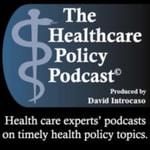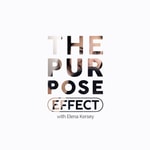The Healthcare Policy Podcast ® Produced by David Introcaso – Details, episodes & analysis
Podcast details
Technical and general information from the podcast's RSS feed.

The Healthcare Policy Podcast ® Produced by David Introcaso
David Introcaso, Ph.D.
Frequency: 1 episode/15d. Total Eps: 317

www.thehealthcarepolicypodcast.com
Recent rankings
Latest chart positions across Apple Podcasts and Spotify rankings.
Apple Podcasts
🇨🇦 Canada - government
31/07/2025#86🇨🇦 Canada - government
30/07/2025#60🇨🇦 Canada - government
29/07/2025#30🇬🇧 Great Britain - government
13/06/2025#79🇺🇸 USA - government
27/05/2025#87🇺🇸 USA - government
25/05/2025#84🇨🇦 Canada - government
13/05/2025#100🇨🇦 Canada - government
12/05/2025#77🇨🇦 Canada - government
11/05/2025#53🇨🇦 Canada - government
04/05/2025#91
Spotify
No recent rankings available
Shared links between episodes and podcasts
Links found in episode descriptions and other podcasts that share them.
See allRSS feed quality and score
Technical evaluation of the podcast's RSS feed quality and structure.
See allScore global : 53%
Publication history
Monthly episode publishing history over the past years.
Prof. Tad Delay Discusses His Recent Work, "Future of Denial, The Ideologies of Climate Change"
vendredi 9 août 2024 • Duration 37:38
Climate denial remains rife in the US. For example, in Washington, D.C., nearly 25% of the current members of Congress are, via their public statements, climate denialists. As for Health and Human Services (HHS), the department has steadfastly refused to promulgate any regulations to mitigate the healthcare industry’s massive carbon footprint that, for example, amounts to well over four times the annual cumulative greenhouse gas emissions of Exxon, Marathon Petroleum, Phillips 66, Chevron and BP.
In his just-published book Tad Delay provides an unsparing assessment of “the vast arsenal of denial that we rarely ever talk about,” i.e., “the scams, lies and misinformation that sustain the degradation of people and planet.” As I note during the discussion, Delay’s work can be read in context of Wainwright and Mann’s 2018 work, “Climate Leviathan” also published by Verso.
See: https://www.versobooks.com/products/2857-future-of-denial?srsltid=AfmBOoqF3FkLO1Aa5HBJhDrdFBE2ssKju6LOOjW0Og1x4l0YOE59Cup3
This is a public episode. If you would like to discuss this with other subscribers or get access to bonus episodes, visit www.thehealthcarepolicypodcast.com
Ms. Alyson Rosenthal Discusses Food As Medicine
jeudi 1 août 2024 • Duration 33:31
In the recent past, hunger, food insecurity and malnutrition have (re)gained policymakers’ interest largely due to the COVID pandemic and accelerating climate breakdown – that has among other things reduced the growth of global agricultural production by 30-35%. As a result, last year 2.8 billion of the world’s population could not afford a healthy diet. In the US, over 40 million Americans receive food assistance via the federal Supplemental Nutrition and Assistance Program (SNAP) in large part because grocery prices have increased by over 20% since 2021. Poor diet has long been known to be responsible for innumerable causes of disability and death. For example, the number of states with an obesity rate at or above 35% doubled over the past five years to 19. One in 10 Americans have diabetes and one in three will be diagnosed with cancer, both of which are related to poor diet. Diet-related diseases also help explain high US COVID morbidity and mortality rates.
Information concerning West Side Campaign Against Hunger’s efforts is at: https://www.wscah.org/.
Recently published research regarding the association between food security, health and dietary factors discussed during this interview is at: https://www.ncbi.nlm.nih.gov/pmc/articles/PMC10857290/.
This is a public episode. If you would like to discuss this with other subscribers or get access to bonus episodes, visit www.thehealthcarepolicypodcast.com
Dr. Robert Scoggins Discusses Medicare's Recent Regulatory Reform to Improve Sepsis Care
mardi 19 décembre 2023 • Duration 23:49
Sepsis presents an enormous public health threat. There are for approximately 1.7 million hospital cases and 270,000 deaths per year. Sepsis is consistently in the top five for hospital case volumes and is the most expensive and resource intensive medical inpatient condition, representing approximately 15% of total hospital costs despite accounting for less than 4% of hospital stays. Various studies estimate sepsis is present in 30% to 50% of hospitalizations that culminate in death. Because two-thirds of sepsis cases are paid for by Medicare, beginning this January 1, HHS will add sepsis care Medicare’s Value-Based Purchasing/VBP program. Meaning, Medicare hospital reimbursement will be determined in part on adherence in meeting a multi-step sepsis treatment protocol focused on timely diagnosis and treatment. Dedicated listeners of this podcast may recall ten years ago this week I interviewed Dr. Jim Palmer regarding the use of heart rate variability to identify the onset of infection.
During this 23-minute interview Dr. Scoggins begins by explaining why timely diagnosis of sepsis has remained challenging and why the Medicare program will now tie reimbursement to meeting a sepsis quality measure or protocol. He explains the SEP-1 measure, addresses concerns regarding the sepsis measure driving antibiotic overuse and administrative burden, whether paying for sepsis performance will unduly penalize hospitals serving poorer communities, how the Medicare rule will impact his program, comments on emerging technology improving sepsis diagnosis, the extent to which commercial payers will adopt a similar sepsis pay for value payment rule and finally why we are seeing more sepsis infections and mortality.
Robert Scoggins, MD, PhD, has been a practicing medicine for over twenty years as a pulmonary and critical care physician. He currently is Chief of Staff and ICU Medical Director at Kootenai Health in Northern Idaho. He earned his undergraduate degree in Molecular Biology from Vanderbilt University and his MD and a Ph.D. in Microbiology at the University of Virginia. Dr. Scoggins completed his residency in Internal Medicine and a fellowship in Pulmonary and Critical Care at Vanderbilt University.
This is a public episode. If you would like to discuss this with other subscribers or get access to bonus episodes, visit www.thehealthcarepolicypodcast.com
Interviewer as Interviewee: David Introcaso Answers Listeners' Questions (June 17th) (Part II)
mercredi 17 juin 2020 • Duration 24:10
Since I've received and answered questions via email concerning podcast interviews and related health care policy questions over the past eight years, I thought it might be it might be useful to attempt answering listeners via a podcast program. This podcast addresses questions I received via my solicitation a few months ago. Joe DiLauro, the gentleman whom introduces the podcast and thanks listeners after each interview, and moreover my audio engineer, poses the questions.
During Part II of this discussion, 24 minutes length , I address questions concerning differences between the two presidential candidates, expectations for the next Congress, the relationship between economic inequality and health, additional comments regarding the climate crisis, what I've learned over the course of 200 plus podcast interviews and advice I'd give those interested in pursuing a health care policy career. Part I of this conversation was posted May 27th.
As for my bio . . . , over approximately the past 25 years I have done health care delivery, financing, policy research and evaluation in Washington DC. My bio includes having served as Health Policy Adviser to the U.S. House of Representatives Majority Leader, Rep. Steny Hoyer. I also spent eight years working in the US Department of Health and Human Services serving as the Evaluation Officer for the Agency for Healthcare Research and Quality (AHRQ) and as a Public Health Analyst in the Office of Assistant Secretary for Planning and Evaluation (ASPE). I have acute care experience having worked at DC General and post-acute experience having worked with the National Hospice and Palliative Care Organization. My consulting clients have ranged from the American Heart Association and the American Public Health Association to UnitedHealth Group. Among other awards I received a three-year W. K. Kellogg National Leadership Fellowship. I have taught as a adjunct at Georgetown and at George Washington universities and over the past eight years, beyond producing over 200 interviews via this podcast, have authored over 50 health policy-related essays. My BS, MA and Ph.D. degrees were earned at Rutgers and Arizona State.
This is a public episode. If you would like to discuss this with other subscribers or get access to bonus episodes, visit www.thehealthcarepolicypodcast.com
Mary Paier Powers Discusses What Family Caregivers Should Consider During the Pandemic When a Relative Is Resident in a Long Term Care Facility (June 5th)
dimanche 7 juin 2020 • Duration 29:56
The COVID-19 pandemic has had particularly fatal effect on seniors or the frail elderly residing in Long Term Care (LTC) facilities, e.g., in a Skilled Nursing Facility (SNF_ or in assisted living. As of last week approximately four in ten COVID-related deaths had occurred in these residences. For example, in Virginia, as of mid-May approx. 60% of all COVID 19 related deaths have occurred in a SNF, among other states, in Minnesota , 80% of deaths have occurred in SNF and residential care homes. Beyond LTC residents being immuno compromised, federal regulations concerning SNFs have, again, proven to be inadequate. The question begged here is what can family caregivers, or those who have Power of Attorney or serve as Medical Proxy, do to protect their family members living in LTC - particularly if the facility is locked down or preventing family visits.
During this 30-minute conversation, Ms. Powers discusses among other related questions: what family members should know about the LTC facility in which their relative resides; beyond LTC facility’s precautions, what added/additional safety steps can the family caregiver take, e.g., if they've not should they pursue obtaining legal Power of Attorney (POA) and health care proxy authority; considering the extent to which the pandemic has adversely affected their family member's LTC facility, should, or how should, family caregivers evaluate proactively relocating their family member; can family members refuse to have their relative tested for COVID-19; if the relative tests positive for COVID 19 is the family caregiver, POA, medial proxy required to tacitly accept their relative being transferred to a hospital; and, if not, what are appropriate, proactive options can they take or what de facto dvanced care plans/planning should family caregivers make?
Ms. Mary Paier Powers has been practicing law since 1984. Her practice focuses primarily on Estate Planning, Probate matters and Elder Law. She is a native of the Pioneer Valley where she was born and raised, Ms. Powers began her career as a trust officer for Bank of New England West. She next worked at Monarch Life Insurance Company, where she provided legal support and documentation on various life and disability income plans. In 1993, she opened her own estate planning, probate and elder Law practice. In 2019, Ms Powers formed Powers Law Group with her husband and son in West Springfield and Springfield, Massachusetts. Ms. Powers graduated from Trinity College in Vermont and received her Juris Doctorate from Western New England University School of Law.
Per my mention, the CDC guidance, "COVID-19 Guidance for Shared or Congregate Housing," is at: https://www.cdc.gov/coronavirus/2019-ncov/community/shared-congregate-house/guidance-shared-congregate-housing.html.
This is a public episode. If you would like to discuss this with other subscribers or get access to bonus episodes, visit www.thehealthcarepolicypodcast.com
Jennifer Kent, Former Director of the California Dept. of Health Care Services, Discusses California's Response to the COVID-19 Pandemic (June 2nd)
mercredi 3 juin 2020 • Duration 29:12
Since the federal government's response to the COVID-19 pandemic remains, as the The New England Journal of Medicine termed last week, laconic, the US response continues to be best understood at the state level. California immediately comes to mind for obvious reasons. Among others, it has a population of 40 million or 12% of the nation’s total (and if it was its own nation, would constitute the world’s fifth largest economy). To date, California has limited COVID-19 related deaths to 4,250 or 4% of total COVID-19 related US deaths - notwithstanding having a substantial homeless population (approximately 20% of the nation's total).
During this 28 minute podcast Ms. Kent discusses moreover the state's actions in response to the pandemic, especially concerning those most vulnerable including seniors, the poor or the states Medicaid, termed Medi-Cal, population and the homeless. She also discusses the state's efforts at addressing related mental health and those with substance use disorders as well as whether the COVID-19 infection rate has peaked in the state and the state's predicament in funding its Medi-Cal program going forward.
Ms. Jennifer Kent is currently CEO of the Sacramento-based Kent Group. Previously she served as Director of the California Department of Health Care Services. As Director, she oversaw the second largest public healthcare system in the nation with an annual budget of over $100 billion and serving approximately 13 million Californians. She oversaw the administration of twenty-four managed care plans as well as 56 county behavioral health plans. Ms. Kent has also held leadership roles in the state's Health & Human Services Agency and Governor’s office. Her previous experience also includes working in the private sector as a lobbyist, consultant and association executive. Ms. Kent earned her undergrad degree at Saint Mary's College of California and her MPA from the University of Southern California.
Per my mention of California Governor Newsom's response to the pandemic see, for example, https://www.gov.ca.gov/california-takes-action-to-combat-covid-19/.
This is a public episode. If you would like to discuss this with other subscribers or get access to bonus episodes, visit www.thehealthcarepolicypodcast.com
The Sabin Center's Michael Burger Discusses the Administration's Dismantling of Environmental Protections (May 29th)
dimanche 31 mai 2020 • Duration 30:28
It should go without saying that we interact with the environment constantly. It should also go without saying a degraded environment compromises our health and leaves us less resilient. This explains why Black Americans, disproportionately suffering from chronic conditions resulting from, e.g., poor air quality, are suffering COVID-19 mortality rates upwards of three time that of White Americans. According to the National Academies of Science, the environment is responsible for 30% of premature mortality while health care is only responsible for, or prevents, 10%. Despite formally admitting via, e.g., Environmental Impact Statements, the Trump administration has gutted the nation’s environmental protections. According to the Sabin Center, the administration has unwound, or intends to unwind, approximately 100 environmental regulations ranging from power plant and car and truck CO2 emissions, mercury and hydroflurocarbons emissions, rules protecting wetlands from oil and gas leasing, rules regarding pesticide use, drilling, fracking and coal leasing rules, off shore oil and gas drilling rules, Arctic exploration rules, rules governing natural gas pipeline construction and logging rules and the US’s commitment to the Paris climate accord. Concerning the climate crisis, as I've noted previously research published in 2016 concluded that the adverse health affects resulting from health care industry’s greenhouse gas emissions is commensurate with upwards of 98,000 deaths annually in the US alone.
During this 30 minute discussion, Professor Burger explains the Sabin Center's mission, provides an overview of the administration's efforts to moreover unwind air quality standards, discusses related procedural rules the EPA has/is unwinding, e.g., restrict the use of scientific research, and discusses the Juliana decision in light of related climate crisis-related court decisions world wise.
Profess or Michael Burger is the Executive Director of the Sabin Center for Climate Change Law. He frequently collaborates with researchers across Columbia's Earth Institute, and with local and national environmental groups, government representatives, and international organizations. Previously, he was an associate professor at Roger Williams University School of Law. Previously still he taught in the Lawyering Program at New York University School of Law, served as an attorney in the Environmental Law Division of New York City’s Office of the Corporation Counsel. He has also lead short courses on climate change and human rights in the Hague. He is also a co-founder and member of the Environmental Law Collaborative, and is the incoming chair of the New York City Bar Association International Environmental Law Committee. Professor Burger is a widely published scholar, a frequent speaker at conferences and symposiums, and a regular source for media outlets, including The Washington Post, Newsweek, Time, Forbes, The Guardian, Bloomberg, and Vox.com. Michael is a graduate of Columbia Law School and of Brown University and also holds a Master of Fine Arts degree from the Creative Writing program at NYU.
Though not noted during the interview, listeners are encouraged to read, Climate Change, Public Health and the Law (Cambridge University Press), edited by Michael Burger and Justin Gundlach. At: https://www.cambridge.org/core/books/climate-change-public-health-and-the-law/D2DED4C703EBD2F8CBD5B302E0B7AA3B.
Concerning the administration's attack on air quality, see, e.g., S. William Becker and Mary D. Becker, "The Devastating Impacts on the Trump Proposal to Roll Back Greenhouse Gas Vehicle Emissions Standards, "The Untold Story," at http://blogs.edf.org/climate411/files/2019/05/FINALGHGREPORT.pdf.
This is a public episode. If you would like to discuss this with other subscribers or get access to bonus episodes, visit www.thehealthcarepolicypodcast.com
Interviewer as Interviewee: David Introcaso Answers Listeners' Questions (May 27th) (Part I)
mercredi 27 mai 2020 • Duration 21:58
Since I've received and answered questions via email concerning podcast interviews and related health care policy questions over the past eight years, I thought it might be it might be useful to attempt answering listeners via a podcast program. This podcast addresses questions I received via my solicitation a few months ago. Joe DiLauro, the gentleman whom introduces the podcast and thanks listeners after each interview, and moreover my audio engineer, poses the questions.
During Part I of this discussion, approximately 22 minutes, I address questions concerning the current COVID-19 pandemic and questions concerning health care policy specifics related to Republican and Democratic party approaches to health care reform, Congressional functioning and policy management by Medicare program regulators.
As for my bio . . . , over approximately the past 25 years I have done health care delivery, financing, policy research and evaluation in Washington DC. My bio includes having served as Health Policy Adviser to the U.S. House of Representatives Majority Leader, Rep. Steny Hoyer. I also spent eight years working in the US Department of Health and Human Services serving as the Evaluation Officer for the Agency for Healthcare Research and Quality (AHRQ) and as a Public Health Analyst in the Office of Assistant Secretary for Planning and Evaluation (ASPE). I have acute care experience having worked at DC General and post-acute experience having worked with the National Hospice and Palliative Care Organization. My consulting clients have ranged from the American Heart Association and the American Public Health Association to UnitedHealth Group. Among other awards I received a three-year W. K. Kellogg National Leadership Fellowship. I have taught as a adjunct at Georgetown and at George Washington universities and over the past eight years, beyond producing over 200 interviews via this podcast, have authored over 50 health policy-related essays. My BS, MA and Ph.D. degrees were earned at Rutgers and Arizona State.
This is a public episode. If you would like to discuss this with other subscribers or get access to bonus episodes, visit www.thehealthcarepolicypodcast.com
Howard Friedman Discusses His Recently Published Book, "Ultimate Price, The Value We Place on Life" (May 12th)
mardi 5 mai 2020 • Duration 35:37
Considering how the COVID-19 pandemic has been addressed by federal policy makers, e.g., the US, with 4.25% of the world's population, accounts for approximately 30% of worldwide deaths, the question arises to what extent do we value life - literally. As Professor Friedman notes in his work, lives undervalued are lives unprotected since they are exposed to greater health and safety risks and enjoy far fewer legal protections.
During this 33-minute conversation, Prof Friedman discusses his motivation or intent in writing the book, what in theory is intended in calculating a monetary value for a life, how value is calculated or the "Value of a Statistical Life," why valuations vary widely, examples of why and when they're employed, for example, the 9/11 Victims Compensation Fund (VCF), the infamous Ford Pinto example and others including employer insurance policies on employees (commonly termed "dead peasants" insurance") and lives threatened by the climate crisis and relevance today in context of the COVID-19 pandemic.
Professor Howard Friedman teaches at the Columbia University Mailman School of Public Health and Columbia's Data Science Institute. He also provides statistical analysis for the United Nations Populations Fund. Previously, Dr. Friedman served as a Director at Capital One where he led teams of statisticians, analysts and programmers in various areas of operations. He has authored and co-authored over 70 scientific articles and book chapters in areas of applied statistics, health economics and politics. His recent publications have appeared in the American Journal of Gastroenterology, Current Medical Research & Opinion, Clinical Therapeutics, Inflammatory Bowel Disease, Journal of Managed Care Pharmacy, Clinical Drug Investigation, American Journal of Cardiovascular Drugs and Value in Health. Professor Friedman is also the author of the 2012 work, Measure of a Nation and the 2013 work, A Modest Proposal for America. Professor Friedman Friedman received his Bachelor’s degree from Binghamton University in Applied Physics, earned a Masters in Statistics and Ph.D. in Biomedical Engineering from Johns Hopkins.
Information on Ultimate Price is at: https://www.ucpress.edu/book/9780520343221/ultimate-price.
This is a public episode. If you would like to discuss this with other subscribers or get access to bonus episodes, visit www.thehealthcarepolicypodcast.com
Krista Drobac Discusses Sweeping Changes in Federal Telehealth Policy In Response to the COVID-19 Pandemic (April 27th)
mardi 28 avril 2020 • Duration 20:45
Listeners may be aware that up until recently the Medicare program strictly limited provider use of telehealth services via originating site and other numerous other regulatory rules despite its much wider adoption by other payers and the VA. (E.g., see my previous interview/discussion with Ms. Drobac.) Annual Medicare reimbursement for telehealth services equaled approximately 0.003% of annual Medicare spending. With the onset of the COVID-19 pandemic, the Congress and CMS regulators, recognizing the emergency or dire need to maintain a Medicare beneficiary's ability to access to clinical care in a timely manner, markedly expanded telehealth coverage. Both the Congress's March 27th CARES Act and CMS' April 6 interim final rule made sweeping reforms to Medicare telehealth policy.
During this 22 minute conversation Ms. Drobac begins by explaining why the Medicare program significantly restricted use of telehealth. Moreover, she outlines telehealth policy reforms noted in recent COVID-19-related legislation, moreover the CARES Act, and in CMS' interim final rule. She discusses take-up or utilization by the provider community subsequent to these reforms, related Stark law issues, the need or persistence of integrity guard rails, and whether telehealth reforms will persist beyond the COVID-19 public health emergency.
Ms. Krista Drobac is the Executive Director of the Alliance for Connected Care, an organization that advocates for telehealth policy reform. She is also a Partner at the DC-based Sirona Strategies, a health policy consulting firm. Previously, Ms. Drobac was Director of the Health Division at the National Governors Association’s Center for Best Practices. Prior to NGA, Ms.Drobac spent five years on Capitol Hill as a health advisor. Prior still, she was a Senior Advisor at the Center for Medicare & Medicaid Services (CMS) working in Medicaid and private insurance regulation and also served as Deputy Director of the Illinois Department of Healthcare and Family Services. Ms. Drobac holds a BA from the University of Michigan and an MPP from the Harvard University Kennedy School of Government.
The Alliance for Connected Care is at: http://connectwithcare.org/.
Telehealth reform policies detailed in CMS' April 6th interim final rule are at: https://www.govinfo.gov/content/pkg/FR-2020-04-06/pdf/2020-06990.pdf
The CARES Act is at: https://www.congress.gov/bill/116th-congress/senate-bill/3548/text.
This is a public episode. If you would like to discuss this with other subscribers or get access to bonus episodes, visit www.thehealthcarepolicypodcast.com









